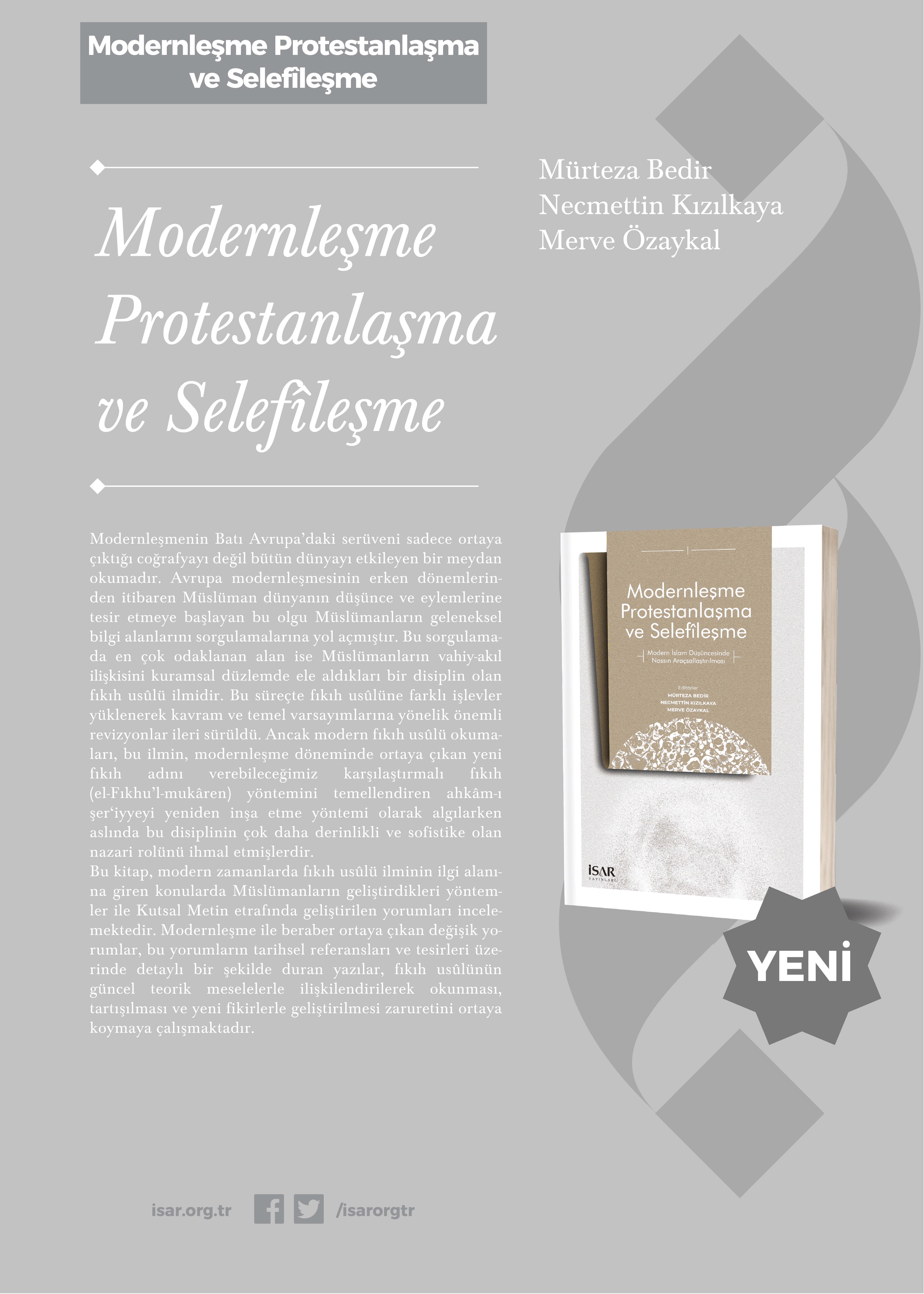The adventure of modernization in Western Europe is a challenge that affects not only the geography in which it originated, but the whole world. This phenomenon, which began to influence the thoughts and actions of the Muslim world since the early stages of European modernization, led Muslims to question traditional fields of knowledge. The most focused area in this questioning is the scholarly discipline of usul al fiqh, which is a discipline in which Muslims deal with the relationship between revelation and reason. In this process, important revisions were made to the concepts and basic assumptions by imposing different functions on fiqh. However, while modern readings of usul al fiqh perceive this science as a method of reconstruction of ahkam al-sharʿiyya, which is the basis of the comparative fiqh (al-fiqh al-muqaran) method which we can call the new fiqh that emerged in the modernization period, in fact, the much more profound and sophisticated theoretical role of this discipline has been neglected.
This book examines the methods developed by Muslims and the interpretations developed around the Holy Text on topics of interest in the field of usul al fiqh in modern times. It tries to put forth the necessity of the various interpretations that emerged with modernization, the writings that elaborate on the historical references and influences of these interpretations, the reading of usul al fiqh in relation to contemporary theoretical issues, discussion and development of new ideas.
